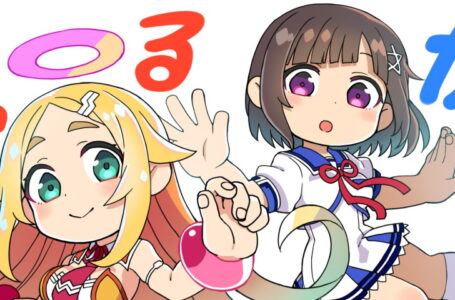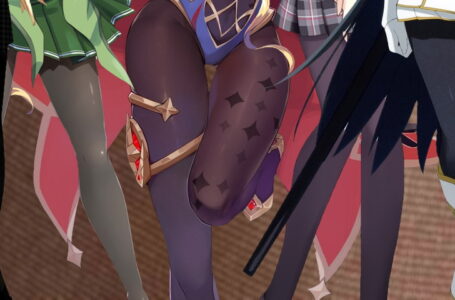Gal*Gun Returns and HuniePop 2 give two contrasting perspectives on love and lust
This week is a great week for fans of lewd games. Not only did the long-awaited HuniePop 2 finally get released to PC players on Tuesday, but Gal*Gun Returns is out on Friday for both Switch and PC. That’s tomorrow!
While the two games obviously have a certain amount of crossover appeal in that they’re both about doing this and that with attractive female characters, what I’ve found interesting in my time with both of them over the last few days is how they come at similar subject matter from a very different angle. So I thought we could talk a bit about that today!
The core theme
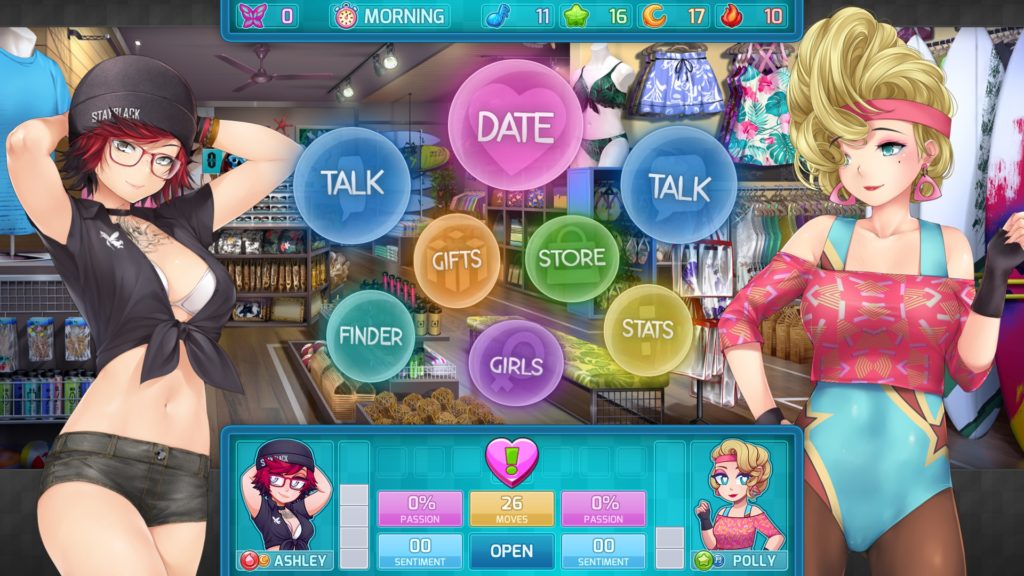
In HuniePop 2, you take on the role of a character tasked with saving the world by, ultimately, having a threesome with two ancient cosmic entities who, if left unchecked, will destroy all of existence. Before you can do this, you need to prove your worth by having as many threesomes with as many different pairs of women as possible.
In Gal*Gun Returns, meanwhile, you take on the role of Tenzou, a character accidentally made completely irresistible to the opposite sex, and attempt to help him find true love amid this chaos. If he fails to find his “the one” by the end of his “day in the sun”, he’ll be alone forever.
While wildly different in both concept and scale on paper, at heart both games are about relationships in one form or another — and specifically relationships that involve some sort of intimacy. One could, in fact, argue that both games are about sexual intimacy in relationships, though Gal*Gun has always taken a more suggestive or metaphorical approach to this as opposed to depicting things explicitly.
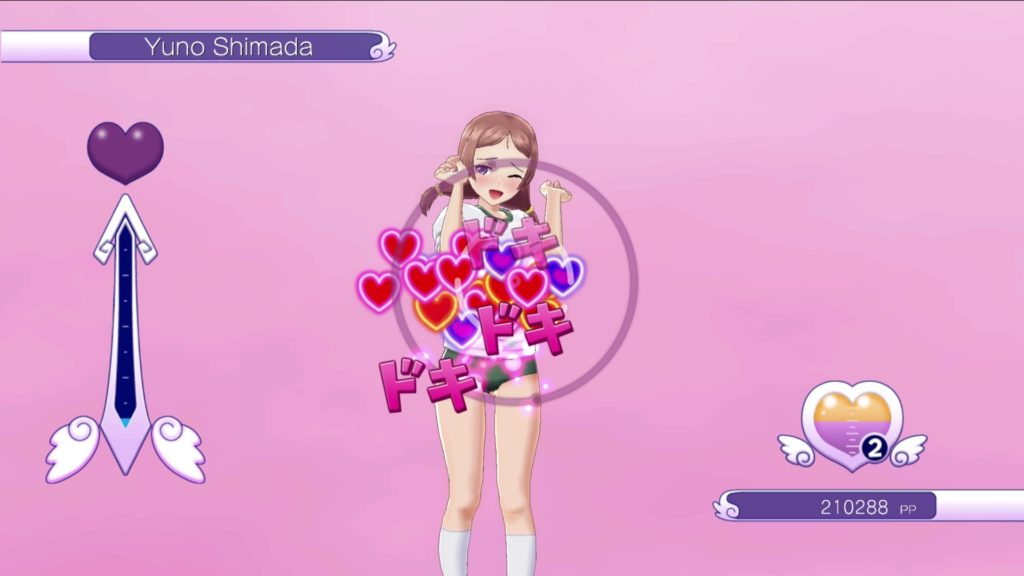
Gal*Gun’s approach is partly down to the fact that it’s always been a series designed for consoles — and thus beholden to the various platform holders’ standards — but it’s also a stylistic thing, too. Gal*Gun would have a very different feel if it featured explicit sex scenes; not necessarily “better” or “worse” than what it is right now, but certainly very different.
HuniePop, meanwhile, was originally designed in protest against the rise in quasi-Puritanical attitudes towards sexual content from certain quarters of gaming culture, and as such has never had any qualms about being pretty explicit at times — though it’s also worth noting that there are certain things it still holds back from depicting. In fact, although sex is an important part of the HuniePop experience — both in the original game and in HuniePop 2 — much of the game’s focus is on establishing the relationships required to make those sexual encounters happen, rather than the encounters themselves.
Idealism vs. realism
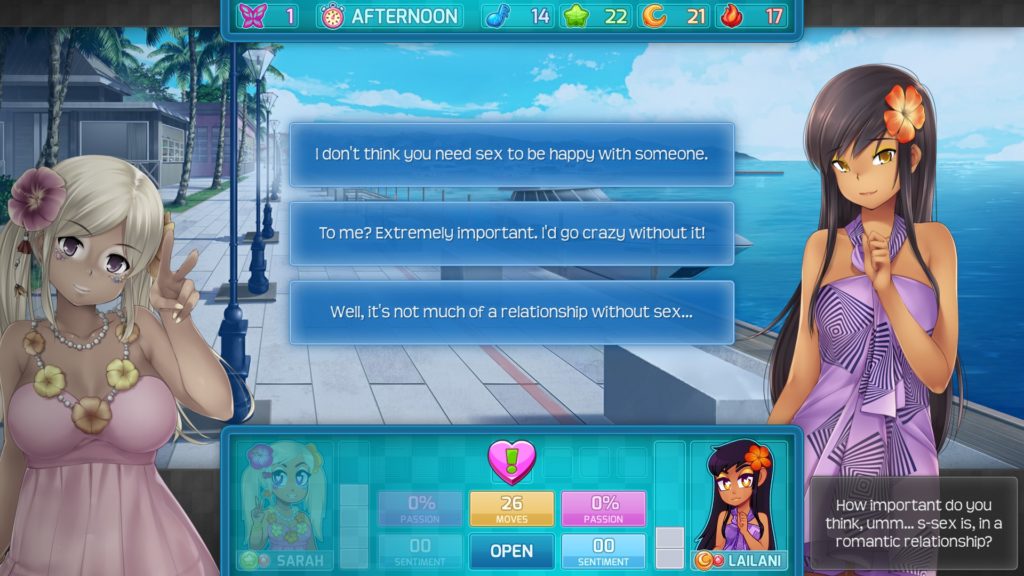
Probably the core difference in approach between HuniePop 2 and Gal*Gun Returns is the fact that Gal*Gun’s narrative is idealistic fantasy, while the concept behind HuniePop 2 feels a little more plausible. I’m obviously not talking about the cosmic space threesome here; I am instead referring to what makes up the bulk of the game: the moment-to-moment interactions between the protagonist and the main cast of heroines.
HuniePop 2’s approach to developing relationships and sexual intimacy is what I would tend to refer to as both “practical” and “modern”. In HuniePop 2, sex is not some sort of magical soft-focus moment that your whole life has been leading up to; it’s a fact of life that people get up to all the time — and it doesn’t necessarily mean anything more than two (or more) people being in the mood for doing something mutually pleasurable at that moment in time. It is, in a way, transactional, and the game’s honesty in confronting this aspect of modern society is quite refreshing. To put it another way, HuniePop 2’s angle on long-term relationships is that its characters get to know one another, make friends and sometimes have sex with one another when they feel like it; no-one in the core cast — including the protagonist — makes any sort of commitment at any point.
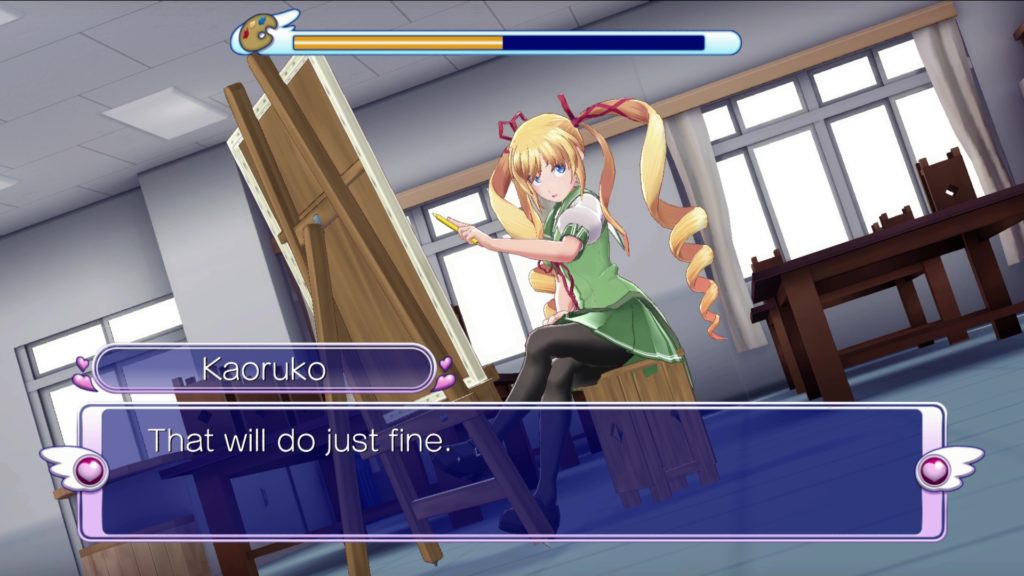
Gal*Gun Returns, meanwhile, represents a somewhat idealised view of relationships; the sort of thing that we’ve seen in dating sims and visual novels for many years at this point. Tenzou starts off with some sort of pre-existing relationship with all the possible love interests, and over the course of the story as a whole attempts to “prove himself” as a worthy partner.
Actual obvious signs of romance are almost completely off the table until the final scenes of each route; prior to that, it’s all about coming to understand your prospective partner as a person, and shaping yourself into the sort of individual that she can see herself spending her life with.
Making mistakes
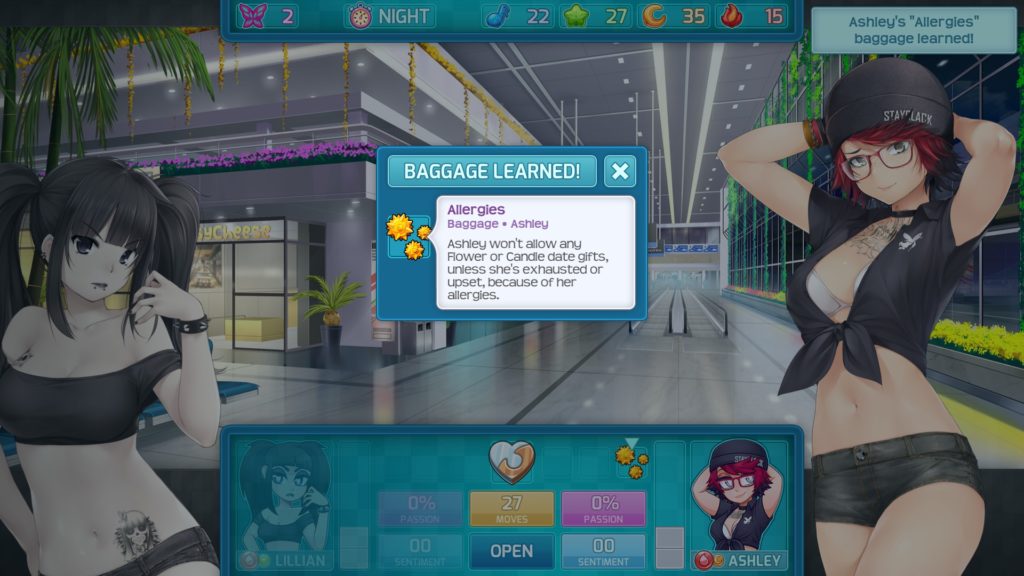
We all make mistakes; the important thing is, of course, how you learn from them — and how you react to those mistakes at the time. This, of course, depends on how serious the mistake you make actually is — and what the consequences for it might be.
HuniePop 2’s rather casual approach to relationships and intimacy means that any mistakes you make along the way are little more than temporary setbacks. You can exhaust a girl or make her mad in the puzzle sequences, but she’ll be raring to go again within a few turns. You can say the “wrong” things in the conversation sequences, but all it means is that you won’t learn a particular piece of information until later.
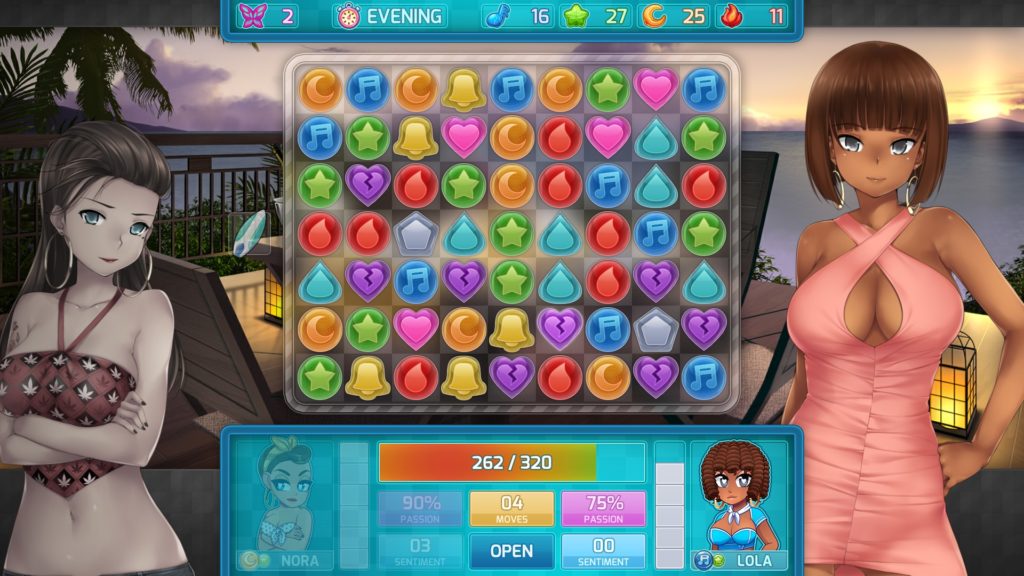
You can even fail a date or bonus round by not completing its objectives in the time or move limit — but it doesn’t matter; you can just try again later. It’s a penalty of sorts, but not one that brings your enjoyment to a screeching halt; it’s just a temporary setback.
All this reflects the fact that no-one in HuniePop 2 is taking these relationships particularly seriously. This isn’t to say that the characters don’t respect one another, mind; it’s more to say that everyone involved agrees that a date is just a date, sex is just sex, and tomorrow is another day. If something doesn’t go the way you hoped or expected it to, it doesn’t matter; take some time to cool off and you can always give it another go at another time.
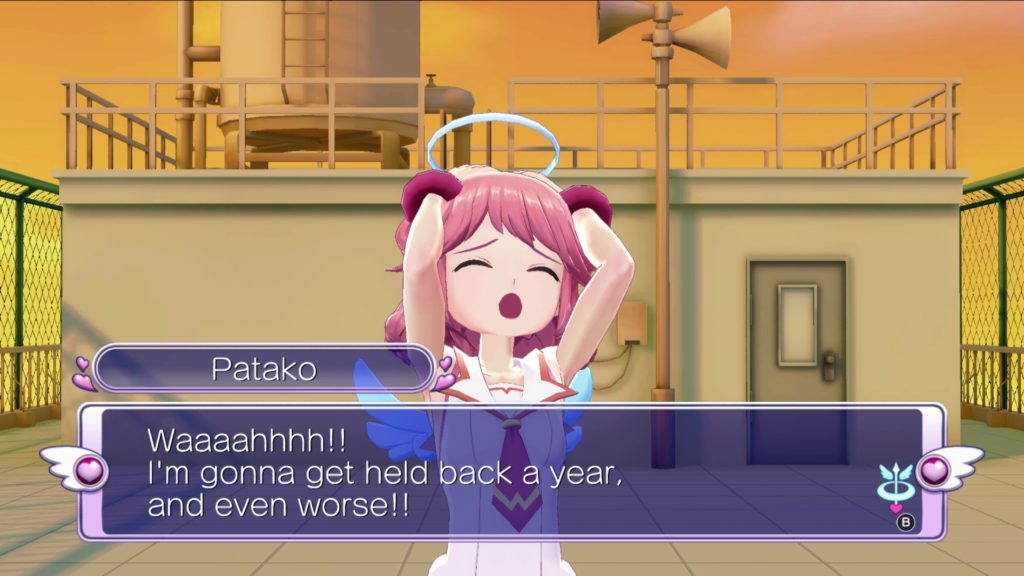
In Gal*Gun Returns, meanwhile, you can fail, and fail hard. And there are a variety of different ways to do that! You can exhaust Tenzou’s willpower during a shooting stage, which means he’ll end up with the girl who “defeated” him — not necessarily an unhappy ending, but not exactly the basis of true love. You can fail one of the event scenes, meaning the relationship between Tenzou and the love interest he’s pursuing is irreversibly damaged in some way. You can even make it all the way through the game only to discover that you haven’t quite said the right things or shaped Tenzou into the right sort of person along the way.
The differences here are as much to do with different game structure as anything else. HuniePop 2 is, at its core, a fairly casual game that is about providing a bit of fun — and a bit of challenge — without overwhelming the player with anything too complicated. It’s a game that anyone will be able to beat with enough persistence, and it’s not primarily designed as a game intended for people who want to show off their skills.
Gal*Gun Returns, meanwhile, is at least partly designed in the grand tradition of arcade games, which means a strong emphasis on replayability. Here, you not only replay the game for high scores, but also to manipulate Tenzou’s stats differently, and to make different choices in the dialogue scenes. There are several different endings for each of the main routes through the game, and while getting a “bad” one can be looked upon as a failure to help Tenzou achieve his goal, even these bad endings provide enough story context to make them feel worthwhile rather than like a “punishment” of sorts. You did still clear the game, after all.
Love and innocence
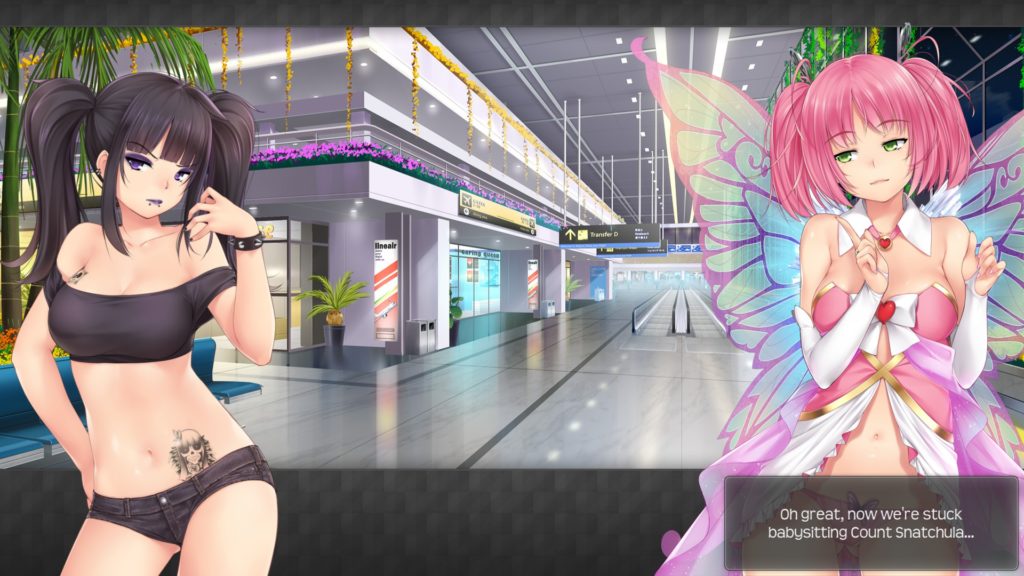
The last contrast we’ll look at today is the idea of purity and innocence, and how this relates to the idea of lust.
In HuniePop 2, the idea of lust is seen as perfectly natural and desirable. Sometimes you meet people that you’re immediately attracted to, and that attraction is mutual. If everyone involved is up for a good time, why shouldn’t you explore that attraction further? It’s nothing to be ashamed of; sexual arousal and attraction are things that are built into our very biology, after all. Not everyone sees it that way, of course, but the cast of HuniePop 2 does; even the most perverted sex addict has nothing to be ashamed of as long as she isn’t hurting anyone.
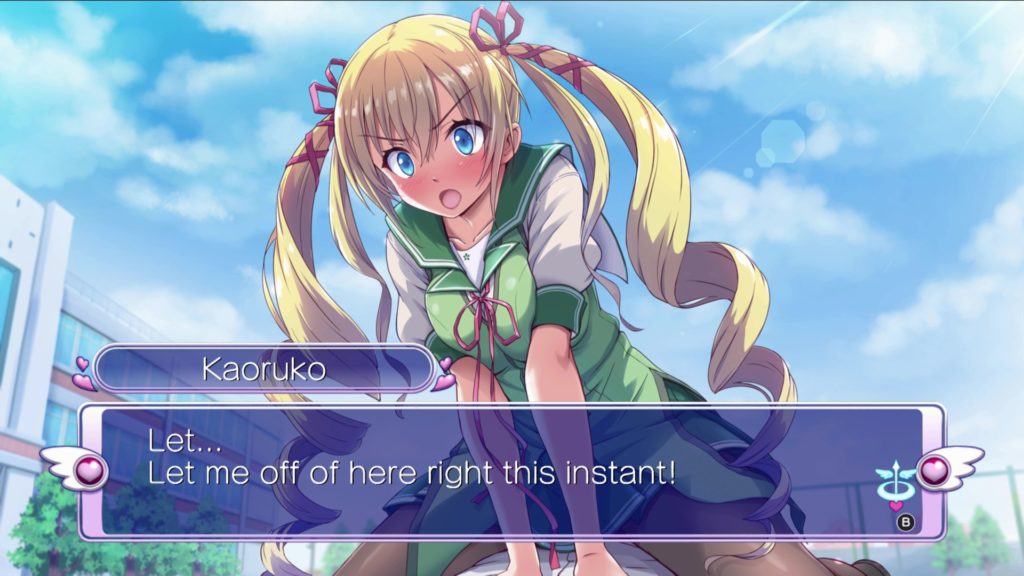
Gal*Gun Returns, meanwhile, sees raw animal lust as something a little less desirable. A little lewdness is absolutely fine among friends — so long as the friends are okay with it, of course — but pure lewdness that isn’t based on pre-existing emotional intimacy is no good. That’s why the majority of the game sees Tenzou fending off the girls who are throwing themselves at him; there isn’t a solid foundation to build a relationship on there, and Tenzou himself doesn’t want a relationship that has not been established through what he sees as “legitimate” means.
Gal*Gun Returns’ narrative runs with this concept. While Patako’s onslaught of angel arrows makes Tenzou irresistible to most members of the opposite sex, there are several individuals for whom his “Popul-Aura”, as he calls it, proves ineffective. Faced with the ultimatum that if he doesn’t confess his true feelings to someone by the end of the day he’ll be doomed to a life of solitude, he has no choice but to attempt to establish a relationship he has obviously thought about the possibility of before. In other words, despite the fact he is “blessed” with immense popularity, he still ends up having to do things “properly” with the prospective partner he chooses to pursue.
Finishing up
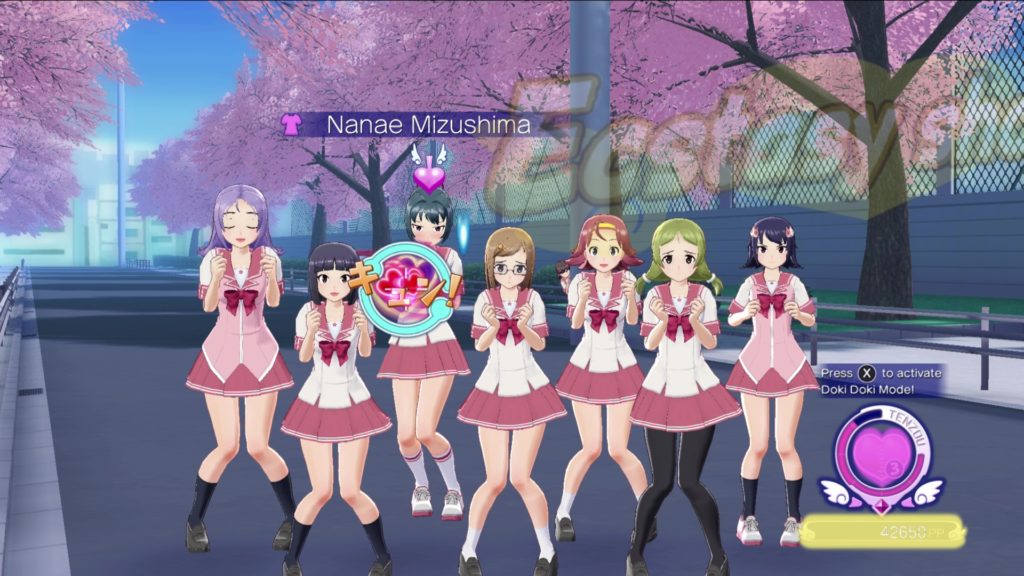
While both HuniePop 2 and Gal*Gun Returns have some common appeal elements, at heart they’re quite different experiences — and not just due to their different mechanical genres.
One offers a series of sassy and saucy but heartwarming love stories that — assuming you see them through to a satisfactory conclusion — will make you feel pleasantly happy for everyone involved. The other provides a more practical look at sexual encounters in the modern age as a somewhat transactional act of friendship and a desire for mutual enjoyment rather than outright emotional intimacy.
Both are valid ways of looking at the subject matter, and it’s interesting to compare and contrast the pair of them. And it’s especially interesting to compare and contrast them when they come out in the same damn week as one another — since doubtless a lot of people out there will be happily playing both!
Now, if you’ll excuse me, I’ve got some gals to gun and some hunies to po– hmm, maybe I should rephrase that…?
Join The Discussion
Rice Digital Discord
Rice Digital Twitter
Rice Digital Facebook
Or write us a letter for the Rice Digital Friday Letters Page by clicking here!
Disclosure: Some links in this article may be affiliate links, which means we may earn a small commission if you make a purchase after clicking on them. This is at no additional cost to you and helps support Rice Digital!
- Letter from the Editor: passing the torch - June 30, 2023
- Super Woden GP 2 is looking promising - June 30, 2023
- Inti Creates is making a 32 bit-style Love Live action platformer - June 26, 2023





